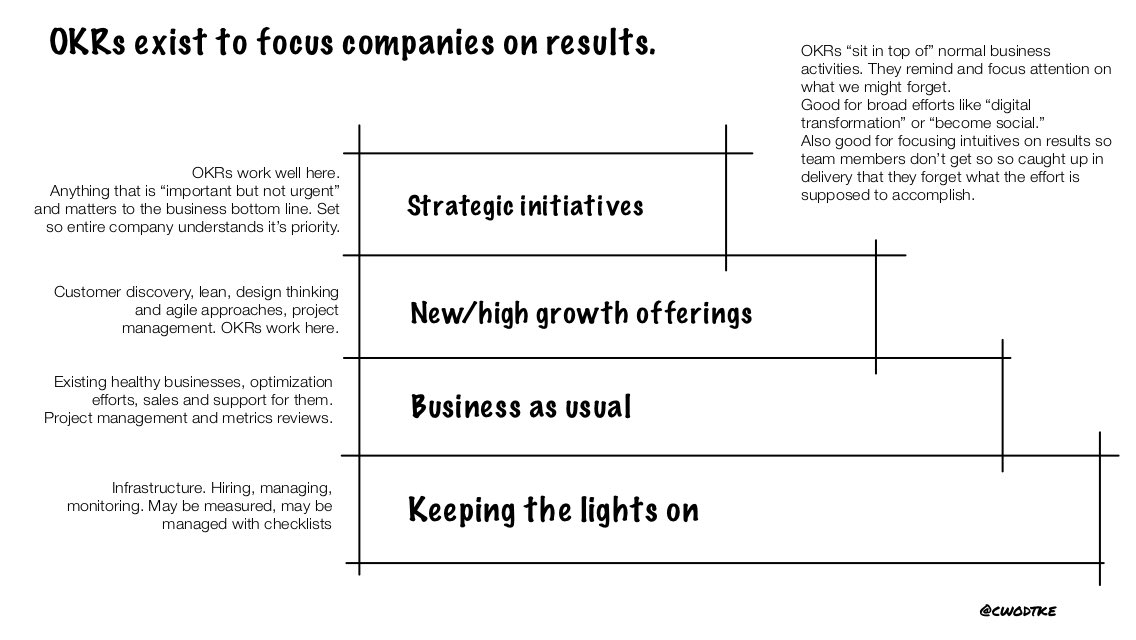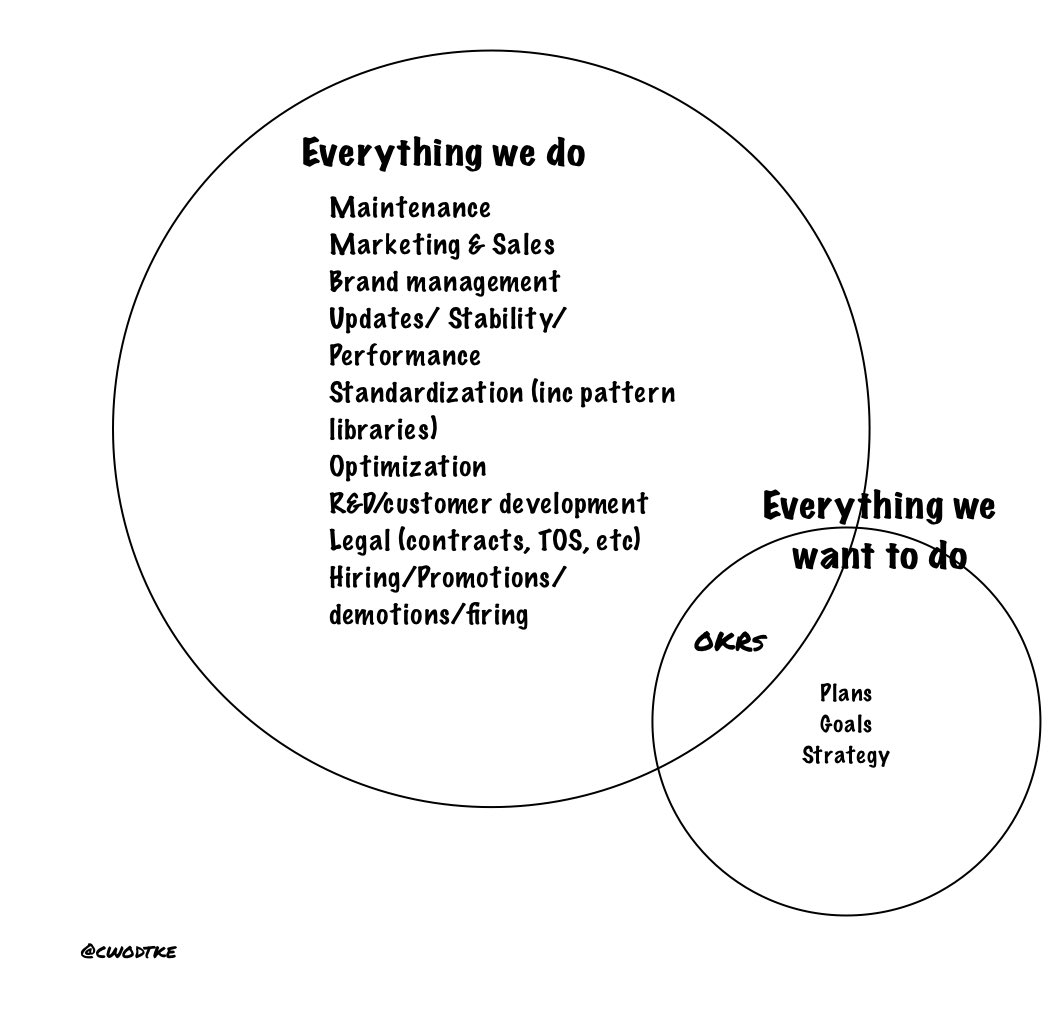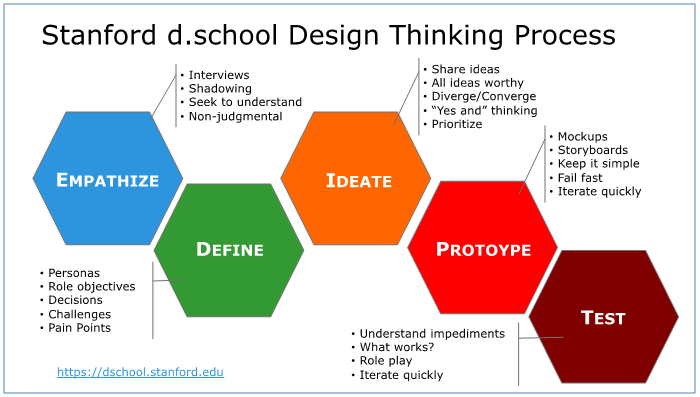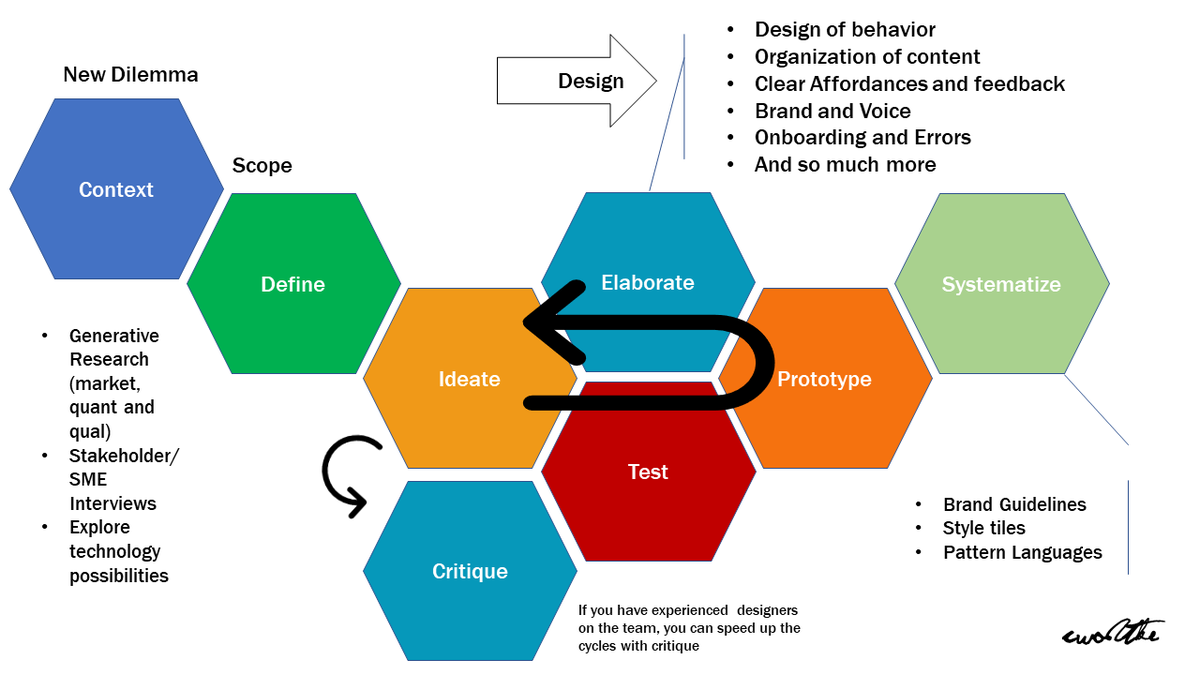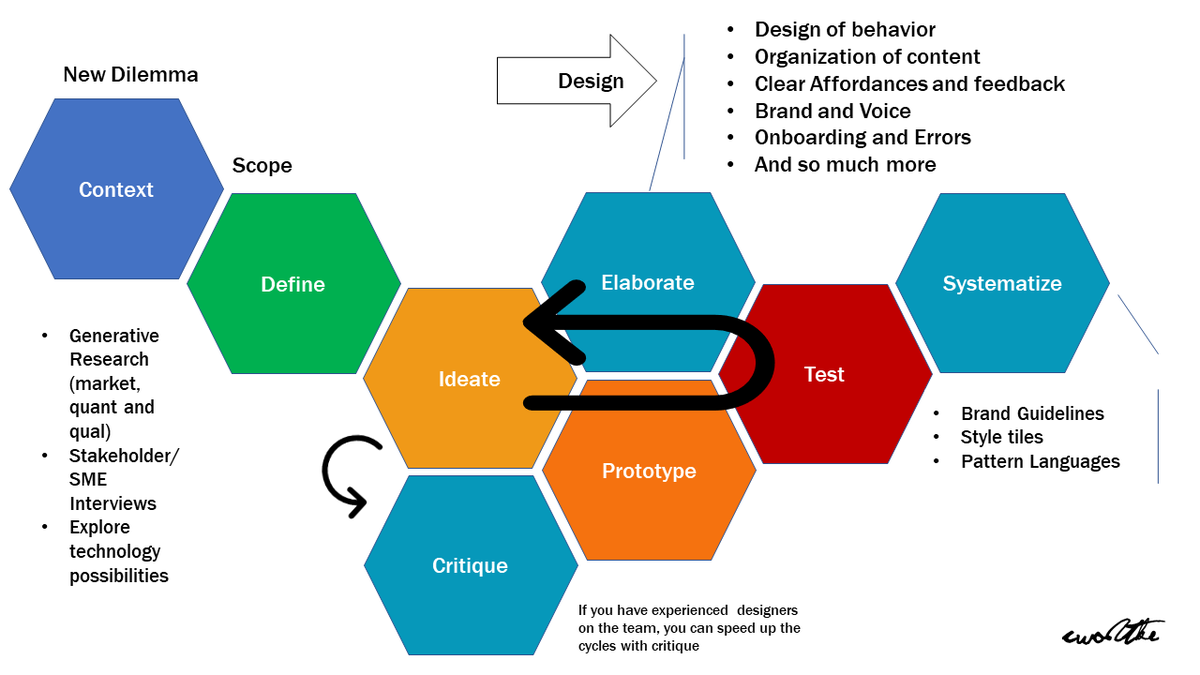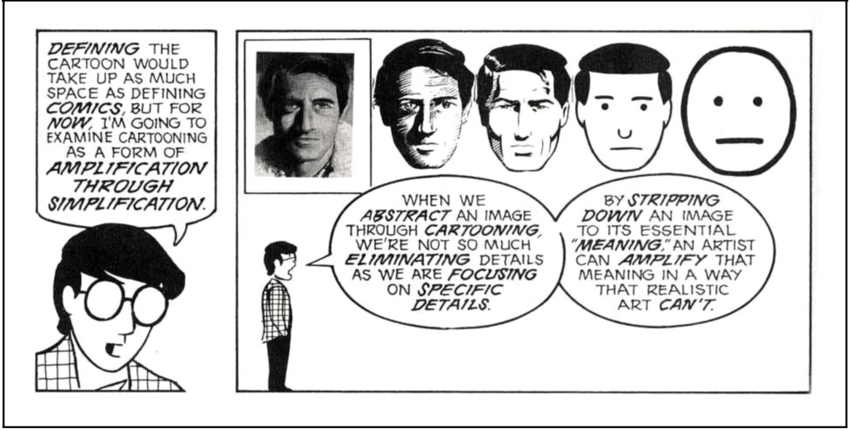
Once upon a Time, someone, perhaps Andy Grove, perhaps Peter drucker, came up with a very simple idea. What if we told people what result we wanted and trusted them to figure out how to make that result happen.
They called it managing by objectives. And the big idea was saying, "we'd like to improve engagement." Or "we'd like to make the business successful by becoming the number one name in processors" or "we'd like to make the world's information findable and usable."
And then someone else figured out a good way to format it, a lot like SMART goals. Let's unite the company by having a visionary objective and clear results. And then all these smart people that we've hired can figure out what they should do to make those results happen!
This took a big change of thinking in management. Instead of telling people what to do, you had to figure out how to tell them what you wanted to see happen in the future.
But this was amazingly powerful because suddenly if you hired really smart people who hated it when you micromanage them you could take advantage of all that smartness and point them all in the same direction.
This was also awesome because everyone needs to sleep, even CEOs. And if you're trying to tell everybody what to do, and your company gets to any decent size, you're going to fail and probably have a nervous breakdown along the way.
But then there's very simple system, called OKRs, was picked up by consultants who wanted to make their clients happy. And when a client wanted to make one of the key results into delivery of a project, the consultants just smiled and nodded because they wanted to get hired again
And then a bunch of people wanted to make software, but it's really hard to make software around results (pro tip, make it a dashboard!) So instead they made project management software that tracked what people were doing as opposed to the results they were creating.
And that meant the software manufacturers had to water down the idea of OKRs.
And these consultants and software folks wrote articles and books and didn't want to offend anybody and wanted to make money.
And these consultants and software folks wrote articles and books and didn't want to offend anybody and wanted to make money.
And suddenly companies were trying to use OKRs to do crazy things like manage all the activities in the company! They were trying to use okrs for performance management and for project management and a bunch of stuff that okrs were never made to do.
And those people were frustrated, and upset. And even worse, people were working so hard to try to shoehorn a methodology into doing something it was never designed to do that they didn't have time to focus on the numbers that told them whether or not their company was succeeding
And if they were smart, they asked an important question like, is this really different than tracking things in Trello? Don't we have project managers for this? Maybe we should just get management training for our managers so they know how to do performance reviews.
And if they were really really smart, they asked themselves, "what's a big deal about OKRs" and what makes him so successful? And that would have taken them back to the original idea.
What are OKRs? It is a goal setting methodology that focuses on outcomes, empowering teams so they can figure out how to make the business successful. Anything else is not OKRs. Anything else is project management wine in OKR bottles.
I'll be perfectly honest. If I never got hired for an OKR job again I would be completely happy. I have a lot of interests, including empowered teams and how to teach game design. I wrote radical focus because I thought okrs were pretty nifty.
OKRs have transformed my life. And they have transformed companies that I've worked with. It's really hard to stay focused on the results you want when everybody is asking you if you've made progress on the projects you've committed to. But if you always focus on results,
You are freed up to change your mind when you get new information. If you commit to a project you're stuck with a project. But if you commit to a result you have flexibility to adjust as you get new information.
We live in an incredibly complicated world in which we're always getting new information. The freedom to stay nimble and focus on impact can be the difference between success and failure.
OKRs are part of a larger management philosophy, that includes things like agile and lean. OKRs exist to protect incredibly important strategic initiatives that might get bumped in the everyday activity of life.
Which means we have to recognize there is an everyday activity of life. There are metric reviews. There are maintenance efforts. There's branding and marketing and sales and they all matter. Every company does so many things, and different companies need different approaches.
Objective: chill
KR: doggo and I sleep well tonight
KR: zero sunburn
KR: heart rate lower after than before
KR: doggo and I sleep well tonight
KR: zero sunburn
KR: heart rate lower after than before

I should include some resources.
On OKRs eleganthack.com/the-art-of-the…
On outcome based results eleganthack.com/why-key-result…
One could also buy my book, now in the second edition amzn.to/3jgptWn
On OKRs eleganthack.com/the-art-of-the…
On outcome based results eleganthack.com/why-key-result…
One could also buy my book, now in the second edition amzn.to/3jgptWn
I wonder why OKRs devolved into project management. Maybe it's because a lot of folks are solution oriented, and it's hard to focus on results and not fall in love with the solution.
I wonder if OKRs become task management because some people think management means telling people what to do.
Maybe it's because some people are scared letting go might mean it gets done badly. Or maybe afraid it might get done well.
Maybe it's because some people are scared letting go might mean it gets done badly. Or maybe afraid it might get done well.
Maybe it's because some managers/CEOs are control freaks. Maybe some people think they are the only one who knows the right thing to do?
But if you tell people what to do without telling them what the results you want are, people often do it wrongly because they don't understand what they are doing.
And then the boss thinks, clearly I need to watch more closely! when the opposite is true.
Hire well and let go.
And then the boss thinks, clearly I need to watch more closely! when the opposite is true.
Hire well and let go.
• • •
Missing some Tweet in this thread? You can try to
force a refresh


